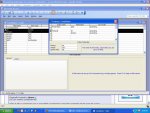jonathanchye
Registered User.
- Local time
- Today, 14:39
- Joined
- Mar 8, 2011
- Messages
- 448
Sorry for all the question but working on a tough project so would really appreciate all the help I can get 
I have two fields called FKVersionID and txtMachineName.
What I want to do is to prevent a duplicate of the same FKVersionID and txtMachineName ID combo.
For example there could be only one instance of txtMachineName = "Cutter" and FKVersionID = 1 but you can have txtMachineName = "Cutter" and FKVersionID = 2 etc.
Basically I have (for now) 3 machine types but they can be assigned to many versions. I want to only have one version assigned to the 3 at a time so I don't have 2 Cutters on the same version...
Is there a way to check this via VBA?
I have two fields called FKVersionID and txtMachineName.
What I want to do is to prevent a duplicate of the same FKVersionID and txtMachineName ID combo.
For example there could be only one instance of txtMachineName = "Cutter" and FKVersionID = 1 but you can have txtMachineName = "Cutter" and FKVersionID = 2 etc.
Basically I have (for now) 3 machine types but they can be assigned to many versions. I want to only have one version assigned to the 3 at a time so I don't have 2 Cutters on the same version...
Is there a way to check this via VBA?



